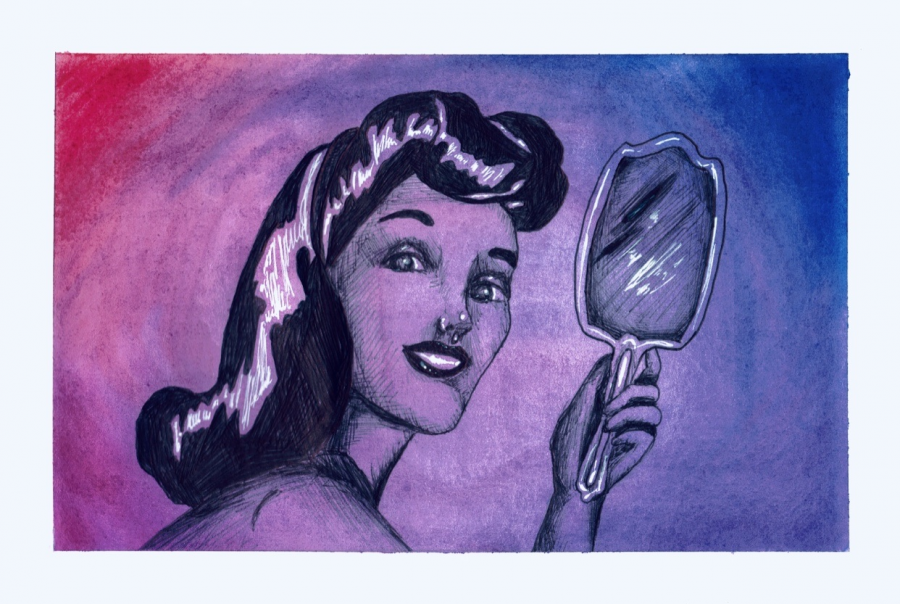On imperfection
October 15, 2020
A few weeks ago, I cut myself with the sharp edge of a freshly opened chickpea can, and it was honestly pretty gross. It sucked because some of my blood made its way into the can, so my friend had to rinse the beans extra clean. My blood also squirted onto our kitchen counter, so we had to wipe that off, too. Another friend of mine swooped in to hold me, clean my finger and band-aid me up.
Looking back, it probably would have nice had I not cut myself, and I should have been more careful.
In my time on Earth, I have made some mistakes, and I have some regrets. We all do. But I think some of us, for a variety of reasons, are burdened with a proclivity to be overly harsh on ourselves for inevitable imperfections.
I will use myself as a case study to illustrate my point. Since I have perfectionistic tendencies, I sometimes wonder how I’d be without all my shortcomings and ethical impurities. I have a habit of getting mad at myself for not being a “better person,” whatever that means to me. While my ideals have certainly been an engine for growth and good behavior, viewing myself in terms of “shoulds” can be exhausting.
In the end, I don’t think it’s fair to compare myself to a hypothetical, alternate-universe, “better” Victoria because she doesn’t exist. I might dream up the qualities of an imaginary Victoria, but realistically, she’s just that — a figment of my imagination. Even if we embrace the idea of the existence of the multiverse, and a self-actualized Victoria is out there somewhere, so what? She wouldn’t really be “me,” and I don’t know her, so why should I torture myself with comparing us two?

If, somehow, a “better” Victoria exists, then a “worse” Victoria likely exists as well, and I don’t think I ought to compare myself to her, either. But what do I even mean by “better” and “worse?” Against what ideals am I making these judgments? I digress.
In the reality where I’m writing this, I am all I have, so I ought to focus on myself. I might as well make peace with past Victoria for anything she’s done to bring me into my current circumstances. To go back to my cut, my skin is still healing, and that’s fine. On a more personal note, I am recovering from a habit of cruel self-talk, and I think that’s alright, too.
To quote self-improvement god Joey Schweitzer, “If you know that you’re human, you make mistakes, and you’re allowed to make mistakes, you’ll worry a lot less about making them,” and internalizing this mindset can be so freeing. Embracing imperfection can allow you the compassion to forgive your past self for any self-inflicted hurt, whether literal or figurative, and even make room for a caring inner voice that says things like “It’s okay” and a nurturing “What can you learn from this?” when you slip up. As idealistic as it may sound, I truly believe everyone is both deserving and capable of cultivating an inner voice this warm.
I also think it’s exciting to entertain Alan Watts’ idea of us all being “perfect forms of nature” that are incapable of mistakes. It’s a little hippie-dippie, but it might be a helpful route to self-compassion if the “embracing imperfection” idea isn’t convincing.
In any case, perfection is a funky concept, and life is strange. In the limited time we have, I think there is logic to treating ourselves with patience, allowing ourselves to be flawed and living life “like it’s practice.”
Podcast reporter Mia Graham interviewed Victoria Helmer on the subject of this column in Episode 5 of The Whitman Wire Podcast.





